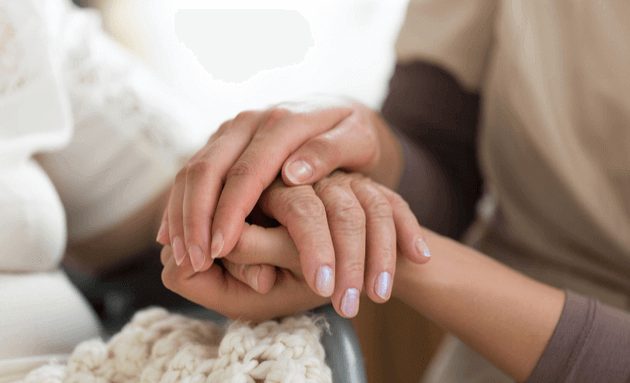Understanding The Basics Of Cancer Recurrence And How To Deal With It

When Cancer Makes a Comeback
Does surviving cancer guarantee it will never return? Cancer in many cases is known to make an unwanted return post-treatment, in the weeks, months, or years after the primary cancer was treated. Cancer recurrence usually happens when the cancerous cells are not completely eliminated from a person’s body. The cells may reappear in the same site as that of the original cancer or in some other part of the body. In some instances, a person may be diagnosed with new cancer that's completely unrelated to their first cancer, in which case it is called a second primary cancer.
How Cancer Can Make a Return

The site of cancer recurrence depends largely on the type of cancer.
Cancer recurrence falls into 3 categories:
- Local recurrence - Recurring in the same part of the body as the original cancer
- Regional recurrence - Recurring in the area around original cancer
- Distant recurrence - Recurring in a part of the body distant from where the original cancer was located or metastasized
Understanding the Difference Between Controlled Cancer and Progressed Cancer
When tests and scans indicate that the cancer is still present but not changing over time, doctors tend to use the term ‘controlled’ to describe the state of cancer. Basically, this means that a tumour is not growing and it may also mean that the condition is stable. In this case, the doctor watches the tumour to track its growth.
When the doctor refers to the status of cancer as ‘progressed’, it means that a tumour is growing. When a tumour measures a 25% growth, it is defined as progressive.
Coping With Cancer Recurrence
Some common reactions to cancer recurrence could include anger, disbelief, anxiety, fear, and self-doubt. Most of these emotions are natural reactions to this intense situation.
In many instances, a person’s reaction to cancer recurrence is much stronger than the initial or original cancer diagnosis.
Understandably, the frustration and anger associated with a second diagnosis can take an emotional toll. For this reason, it is essential to reach out to a professional for help or at the very least seek support from family and friends.
Cancer recurrence can leave you feeling let down by your doctor and your body; many questions creep their way into your mind amplifying doubt and worry.
- Don’t Blame Yourself or Anyone Else: In many cases, cancer survivors who suffer through recurrence will attribute it to a lack of a healthy diet or neglecting self-care. Others might be tempted to place blame on their medical care team, believing they were not given the right kind of treatment. While it is normal to feel this way, remember that the real cause of cancer recurrence is not known, and therefore, blaming yourself or others is not going to help you cope.
- Don’t Let Worry Take Over: Another common reaction to cancer recurrence is asking ‘why me?’. People often wonder they have to suffer through cancer all over again while other survivors remain cancer-free and move on with their lives. This kind of worry and stress will leave you feeling emotionally and physically exhausted; you’re better off expending your energy on treatment. If you feel that you cannot move past this feeling, speak to your medical team, seek out advice from a professional counsellor and talk to your loved ones about what you are going through, emotionally.
- Understand Your New Treatment Plan Well: When cancer returns, your doctor will discuss the various treatment options and explain the efficacy of each. Don’t hesitate to ask questions about the objective of the treatment plan your doctor recommends. It’s completely fine to get a second opinion or get treatment at a specialized institute that has expert doctors in the field.
Treatment Considerations For Recurring Cancer

The type of treatment you receive might be similar to the first time you were diagnosed. For example, you may have surgery to remove a tumour, or you may have to undergo radiation or chemotherapy. In a lot of cases, cancer recurring in the regional locations have been cured. Even if treatment is not effective, the tumour can be reduced to prevent cancer from spreading to other areas. Patients will find this beneficial in reducing their symptoms and general discomfort in dealing with recurrent cancer.
The doctor will consider the following factors when making treatment decisions:
- Type of cancer, the location of recurrence, and size
- Original treatment plan
- Side-effects of the original treatment
- Time-lapse since last treatment
- Overall patient health
We recommend counselling for support on learning how to deal with intense emotional reactions and dealing with treatment and its side effects
At Medanta, we believe that every cancer patient has a unique journey and deserves a personalised and comprehensive approach. This is why we follow a Disease Management Group (DMG) approach to cancer care that assembles a specific multidisciplinary group of specialists like medical oncologists, radiation oncologists, surgical oncologists, pathologists, radiologists and physiologists to discuss and debate the best possible course of treatment for the toughest cancer cases.
Another common reaction to cancer recurrence is asking ‘why me?’. People often wonder they have to suffer through cancer all over again while other survivors remain cancer-free and move on with their lives. This kind of worry and stress will leave you feeling emotionally and physically exhausted; you’re better off expending your energy on treatment. If you feel that you cannot move past this feeling, speak to your medical team, seek out advice from a professional counsellor and talk to your loved ones about what you are going through, emotionally.






